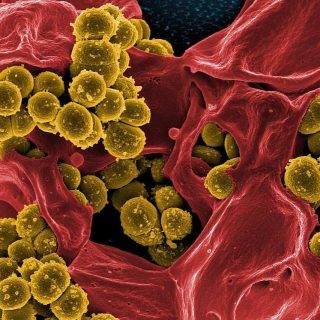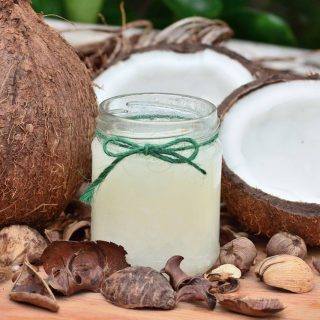
The most common nutrition mistakes endurance athletes make
As an endurance athlete, you invest your time and energy in hard training and your money in adequate equipment – the one that fits your needs perfectly and will help you in achieving the desired goals. But what about the fuel you are putting in your tank?
Proper nutrition is the base for achieving your peak performance! There is no hard training or other aspects that will work for you without the appropriate nutrition. It is an essential aspect for maintaining the right body composition, optimizing your performance, and reducing the risks of intestinal or respiratory conditions.
Although it may seem trivial, many athletes underestimate the power of proper nutrition, neglecting the basis but still asking themselves why their performance is not up to their expectations. Seneca, a famous Roman philosopher, once said, “Errare humanum est, perseverare autem diabolicum,” which means “To err is human, but to persevere in error is diabolical.” Therefore, never stop learning and improving your abilities.
We know that it is easier for you to focus entirely on your training aspect, but remember that nutrition is a crucial pillar of your performance. Take a look at the following mistakes, and if you happen to find yourself in one of them, act and the results will come your way.
Table of Contents
Improper hydration
Improper hydration before, during, and after training or race will have a significant impact on your performance and recovery. The most common problem caused by improper hydration is hyponatremia or low sodium concentration in the blood. Although through different mechanisms, both dehydration and overhydration lead to hypernatremia. Also, the symptoms will depend on the mechanism which leads to it. For example, dehydration and overhydration will both cause muscle cramps, but overhydration will lead to symptoms like upset stomach, bloating, and abdominal discomfort. In severe cases, it can even be lethal. That is why it is best to consult a professional figure who can calculate your fluid needs. In a situation where you happen to have muscle cramps during a race, and you reach that bottle of water thinking of dehydration, you might actually make things worst, as your problem could be overhydration!
When you are feeling thirsty, it means you are late to hydrate. The process of dehydration has already begun; your blood volume is reduced, causing a slight increase in your heart rate and muscle glycogen use. That converts to a decreased ability to produce energy, and the result will be a net decline in your performance.
How much should I drink and when?
The answer is quite simple – it depends! It depends on your body composition, overall health, age, gender, training sessions, type of training, and many other aspects. That is why there is no common answer to this question, especially for an endurance athlete. Yes, there are some general recommendations for an optimal fluid intake during all phases of endurance training, but the exact amounts will be individual.
The intake of approximately 500ml/h is considered optimal. For example, The International Marathon Medical Directors Association recommends a water intake of 400-800 ml/h for marathon runners. Well, from 400 ml to 800 ml is a great deal of liquid, so think twice before being your own master when it comes to hydration.
Hard and prolonged training, especially in a warm environment, causes increased sweating and the chances of an electrolyte imbalance. That is why you should increase not only your fluid intake but also your electrolyte intake. It might make you think that you need to reach out to supplementation, but balanced nutrition and correct hydration will be enough in most cases. This study, for example, shows that potassium and magnesium supplementation is contraindicated during long-distance running and salt intake is unnecessary.
For more information about electrolytes, take a look at our “Electrolytes: Definition, Functions, Imbalance, and Sources” article.
Too much or no supplementation
Exaggerating with supplementation can be as bad as no supplementation. For example, consuming large amounts of electrolyte-containing beverages can be counterproductive, causing a wide range of health symptoms. On the other hand, avoiding supplements can worsen your performance for numerous reasons like low energy levels, muscle cramps, increased susceptibility to infections, etc.
Supplementation is the right choice when your body needs it, without exaggerating and under the supervision of a healthcare professional. Supplements can give you a helping hand, especially during the recovery phase. Unlike those who practice anaerobic activities and need mainly proteins to rebuild skeletal muscle and increase muscle mass, you need carbohydrates to restore your glycogen levels.
The quantity of carbohydrates your body needs pre- and post-workout can sometimes be challenging to ingest, and that is where energy supplements come in handy – like easily digestible carbohydrates.
For example, maltodextrins, which are highly digestible glucose polymers, are a good option. They have a high glycemic index but keep your blood sugar levels stable. Also, they usually do not cause gastrointestinal disorders like hydro-saline solutions rich in sugars like fructose.
Don’t forget about vitamins, minerals, fatty acids, and proteins, as they are essential for the correct functioning of all metabolic processes. A personalized diet based on your characteristics and needs will provide your body the right quantities of micro- and macronutrients. However, high-intensity and prolonged training, weather conditions, poor intestinal absorption, or the need to recover faster from respiratory infections make it necessary to reach out for supplements. But remember – poor nutrition is the biggest obstacle to achieving your goals, and taking supplements makes sense only if combined with a balanced diet.
Cutting out fats
Cutting out dietary fats is one of the most common mistakes endurance athletes make. It usually translates into lower performance and energy levels.
Dietary fats play a crucial role in the energy supply for endurance athletes, other than contributing to hormonal production and the absorption of fat-soluble vitamins (A, D, E, and K).
For example, medium-chain fats are particularly important for you, as they provide fast and usable energy during medium-intensity training.
Unsaturated fats contain high Omega-3 and Omega-6 fatty acids. They are also called “essential fatty acids” as your body cannot produce them. These fatty acids are very important as they protect your cardiovascular system and exert anti-inflammatory properties.
In a nutritional plan, dietary fat amounts are usually set at around 1 g per kg of your body weight, but sometimes even higher if the energy demand is higher. During high-intensity training, the energy reliance is totally on carbohydrates, while during medium and low-intensity training, fats come into play. Inducing the body to consume energy coming in greater proportions from fats will bring several advantages. Unlike carbohydrates (in the form of glycogen), fats are an “inexhaustible” energy source.
Filling your glycogen stores before the race and developing your body’s ability to burn fat will guarantee you more energy and the power to exercise longer before the exhaustion sets in.
Inadequate pre-race nutrition
The main objectives of your pre-race nutritional plan should be:
- Full glycogen stores and increased ability to burn fat
- Proper hydration.
Although we already mentioned that dietary fats are essential for improving your energy levels, their intake becomes less important during the carbohydrate loading period. This period begins about seven days before the race. During “loading” days, you should consume mainly healthy high-carb foods, avoid simple sugars, fats, proteins, and avoid overloading your digestive system.
Examples of high-carb healthy foods:
- Oats
- Quinoa
- Bananas
- Potatoes
- Buckwheat
- Peas
- Milk
- Whole-grain starches
- Corn
It is also important to avoid rich meals on the day of the race, even better to completely avoid solid food. Liquid high-carb and fast-digestible foods are a perfect choice for breakfast. They will restore your hepatic glycogen levels, as muscle glycogen should be at max if you have done loading days correctly. Also, you should never feel hungry. Just as for feeling thirsty, when the hunger comes, it is already late, and it is affecting your performance as your muscle and hepatic glycogen stores are already compromised.
The pre-race nutrition and loading periods are also useful in the days before the peak/speed phase.
After the race, you can begin restoring your glycogen levels by consuming rapidly absorbed carbohydrates and proteins. And above all, do not forget about correct hydration.
Pre-race or pre-workout nutrition is as important as during- and post-workout nutrition. Once you decide to improve your performance and win the race you have always dreamed of winning, you should concentrate equally on all phases of endurance training. Your nutrition will change with every phase, and you will need to adapt fast.
The base phase will require a well-planned nutritional program that will give you all the energy you need to prepare your organism for the peak phase. This part of the program will include all micro and macronutrients in order to make your musculoskeletal and immune systems stronger and more resistant. The peak and taper phase will require more high-carb foods, better if liquid before the actual race. And the recovery phase will require higher amounts of micronutrients like antioxidants to reduce inflammation, muscle damage and help you recover better and faster.
Avoid changing your diet before the race
Changing your diet a few days before the race and experimenting with a new program is not the best thing to do. Each and every progress you have made during your pre-race phase could vanish with your decision to change your tactic and nutritional program with something you were not able to test before.
To avoid the deterioration of athletic performance, just stick to the plan!
Avoid empty calories and unhealthy snacking
Remember to always avoid empty calories, not only during the peak and taper phases.
What does empty calorie food mean?
Empty calorie foods have plenty of calories and refined sugars, and very little nutritional value. The consumption of these kinds of food can cause inflammation, abdominal discomfort, and a wide range of symptoms that every endurance athlete should avoid at all costs.
This refers especially when it comes to snacks. Eat healthy foods like oats, nuts, fresh and preferably organic fruit, and vegetables, honey, etc. You can prepare many different healthy recipes with ingredients packed with flavors and nutrients your body needs to support your passion.
Other Example Articles
Neead a health or nutrition copywriter?




